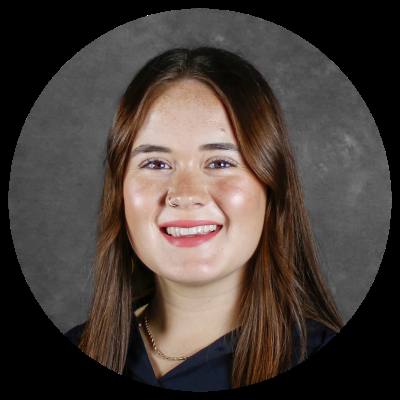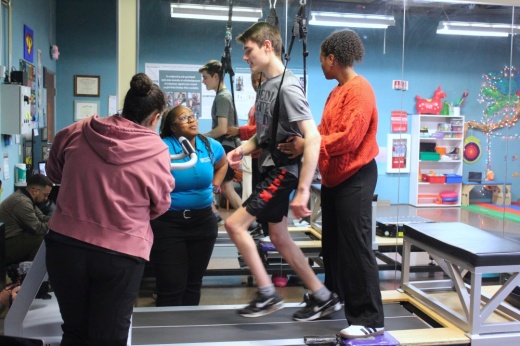Since 2016, the Pro Bono Neuroplasticity Clinic at the University of St. Augustine for Health Sciences' Austin campus has provided free physical therapy to under- or uninsured families of children with cerebral palsy, spinal cord injuries, and other central nervous system conditions.
The pediatric clinic provides hands-on experience for physical therapy students while offering high-demand care for a growing number of families in the Austin area, University of St. Augustine for Health Sciences staff said.
“They really have made a big difference in the community,” said Elisabeth McGee, assistant vice president of innovation and educational technology. “These pro bono clinical experiences allow for an increased amount of like frequency in their care to really help them reach their goals in a way that they wouldn't have the opportunity to otherwise.”
How it works
A handful of children and teenage patients visit the clinic multiple times a week to receive physical therapy services provided by students and faculty. The clinic helps patients foster independence by learning how to walk and improving their motor skills, said Sheila Brose, a physical therapy faculty lab instructor with a doctorate in physical therapy.
Sixteen-year-old Austin resident Martin Smith, who has cerebral palsy, has received physical therapy and locomotor training at the clinic over the past several years.
Earlier this year, Smith used a body weight support system including a harness and a treadmill known as the Biodex Gait Trainer 3. Smith is now able to walk on the treadmill without the body weight support harness as he has improved his walking, balance, and the range of motion in his hips and knees, Brose said.
The clinic is focusing on helping Smith improve his muscular strength and power, she said.
Also of note
The Biodex Gait Trainer 3 treadmill features music that can be adjusted to match a child’s pace through a program known as SoundSteps. The music’s tempo and pitch may be lowered or raised to influence the child’s movement. The music therapy helps improve patients’ walking stride length, coordination and balance, Brose said.
“What we found is when you stimulate the brain correctly ... you get very efficient, fast, intuitive muscle activation and learning,” Hope Young, founder and CEO of Biomedical Music Solutions Inc., told Community Impact in March. “The brain learns an adapted or correct way to move.”
SoundSteps recently launched a mobile app that Smith has used to practice walking at home, Brose said.
The clinic uses a whole body vibration machine to build muscular strength and reduce spasticity. Students and faculty help patients work on activities like standing, reaching, moving and balancing on one leg.
“We really try to work on skills that are meaningful to the child as well as to the family,” Brose said.
Why it matters
The clinic is an important resource for families who couldn’t otherwise afford physical therapy services, Brose said. Some patients have traveled as far as from Killeen to visit the clinic in Southwest Austin.
Smith’s mother, Elishea Smith, said she was unable to afford any insurance plans that were available to her son.
“It's priceless, because I couldn't even pay to get this kind of care,” Smith said. “ I don't know how I could afford it or where I would even go to get it.”
Smith now has the endurance to walk longer distances, which has increased his self-confidence and motivated him to participate in community activities like archery, wheelchair basketball and jiujitsu, Brose said.
In late October, Smith is planning to participate in a 10K relay race in which he and other teenagers will work together to complete the 6.2-mile stretch. With a high grade-point average and dreams of becoming a police officer, Elishea Smith said the sky is the limit for her son.
“I don't want him to be limited because of [cerebral palsy],” Elishea Smith said. “I don't see him with a disability. I just see him with a challenge.”





